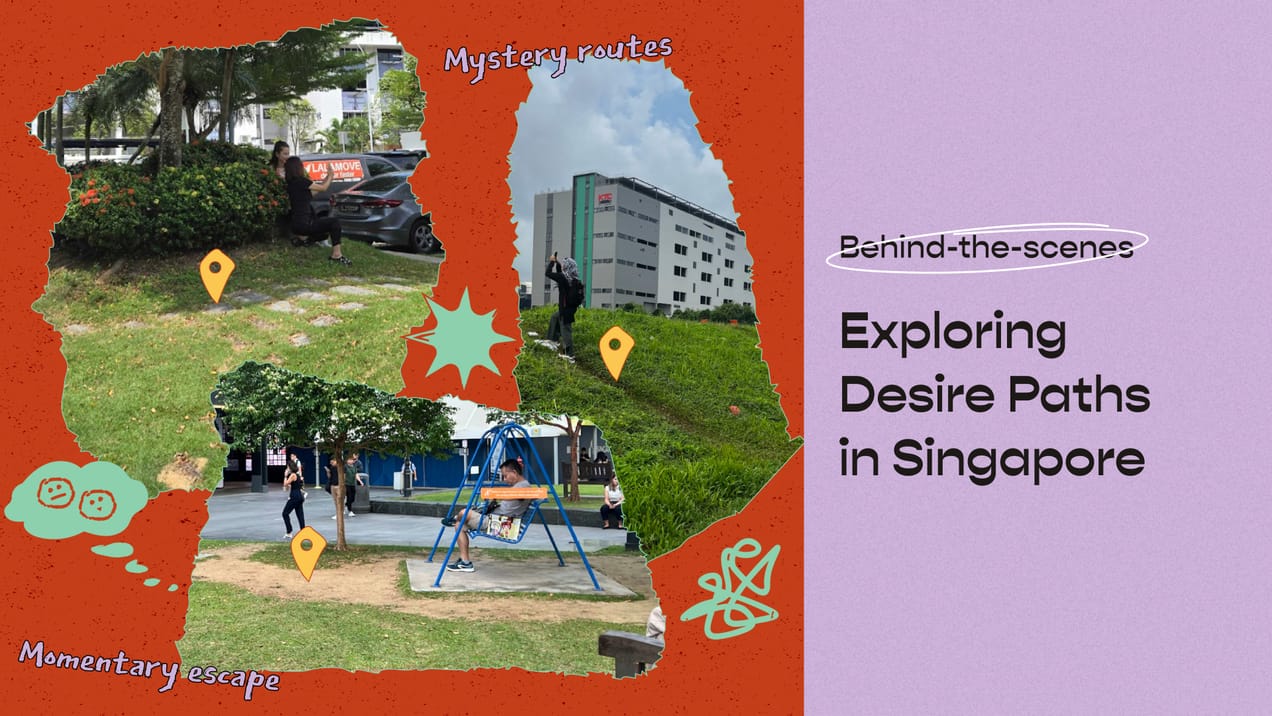Hey! 👋
Welcome to Kawan—our vibrant community of data heads and storytellers. We’re all about improving data literacy and sharing nuanced stories about Asia. Come hang!

when the rains didn't stop— issue #70
Heavy rainfall is no stranger to Southeast Asia, but last year's monsoon rains led to the worst flood Thailand has seen in decades. As the weather becomes more extreme and erratic, how will this shift our relationship with nature?
Exploring Desire Paths in Singapore
The team behind ‘A line of our own drawing’ shares deeper about their ideas, process, and experiences researching desire paths in Singapore.
Dataviz in Asia (Nov 23')
This month in Dataviz in Asia, we're diving into stories that show us how data visualisations are powerful mediums used to tell important environmental stories in Asia. Our first highlight is an infographic by Ganesh B Varakale for India In Pixels, spotlighting the alarming levels of untreated sewage
Clarifying the complicated issue of carbon credits
In this article, we share our process of creating our data-driven explainer about the voluntary carbon market and Singapore’s role in it. We break down how we turned a large and complex concept into a more digestible piece. This story was written in collaboration with the Earth Journalism Network,
Girlmossing 101: A Beginner’s Guide
The term “girlmossing” may have surfaced on the internet just a couple of years ago, but I’ve been embracing this lifestyle long before it had a name. Girlmossing, which is a play on the word “girlbossing”, refers to women making intentional time and space for rest, joy, and self
What role does data play in death?
Over the past few weeks, I’ve seen my social media feeds and television screens flooded with rapidly rising death tolls as a result of the heavy bombardment in Palestine, notably being one of deadliest years since 2005 for those living in the West Bank. As of today, over 8,
Meet the Community: Patchar Duangklad (Fai)
Patchar Duangklad (Fai) is the co-founder and business developer at Punch Up, a Bangkok-based data storytelling studio that creates meaningful conversations with data, design, and stories. Coming from a background in public policy and media, Fai shares her journey in setting up Punch Up, as well as WeVis, a civic
Dataviz in Asia (Oct '23)
Amidst a landscape of misinformation and conflicting reports, making sense of the current humanitarian crisis in Palestine and Israel can be quite challenging. Data has become especially critical in this context. This month we want to highlight some visualisations that are helping us to contextualise the recent happenings, and sieve
Behind the world of Myanmar's copy songs
The team from Thibi shares their process of creating their groundbreaking data-driven explainer on Myanmar’s “copy thachin” or copy songs movement. This is the first time that Kontinentalist is collaborating with Thibi, a data and design consultancy, on a story. In this article, Thibi breaks down how they pulled
Meet the Community: Poojil Tiwari
Poojil Tiwari is currently a Communications Associate at the Council of Energy, Environment and Water (CEEW) where she creates data stories and visualisations on India’s environmental challenges. She was previously a Data Journalist Fellow at Newslaundry and India Data Portal at Bharti School of Public Policy. A classically-trained Bharatanatyam
How do we lay roots in shifting soil: Reflections from Creating Narratives for Change Festival
I’ve been watching a lot of TV shows lately, my recent favourites being Insecure and Abbott Elementary. Both shows take place in predominantly Black neighbourhoods in the United States, forming the backdrops for these characters as they explore their own relationships to their work, friendships, and homes. Their neighbourhoods














